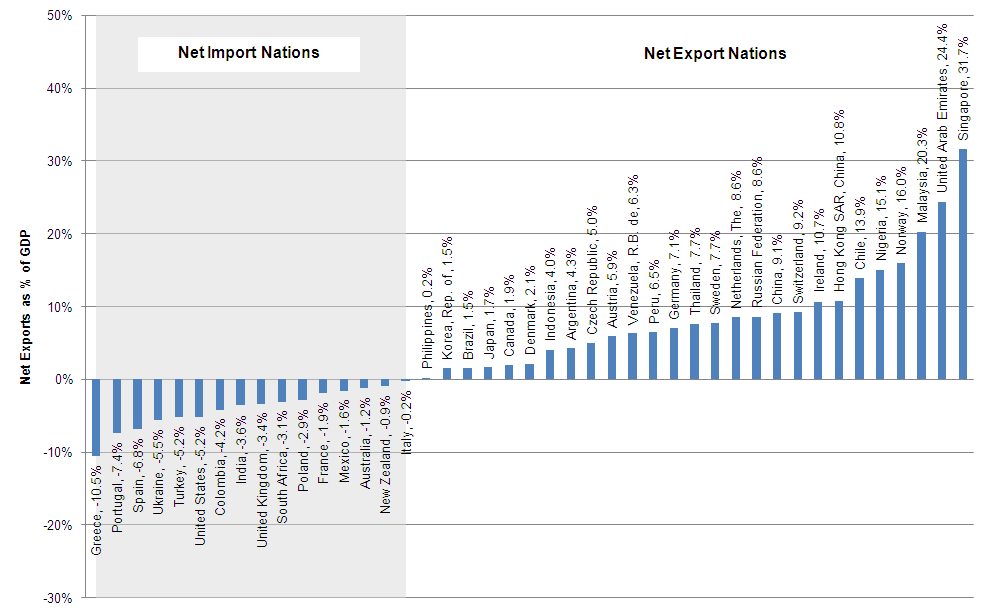Guido Mantega, Brazil’s finance minister this week declared that the world is “in the midst of an international currency war, a general weakening of the currency.” He was referring to the attempts by many nations such as Japan, Taiwan, Argentina, Russia, Australia, Switzerland, Columbia, Indonesia and Poland to name a few, to weaken their respective currencies. A country can try to weaken it’s national currency relative to another country’s currency by intervening in the currency market. For example Japan has been selling the Yen, its national currency,and purchasing other currencies such as the U.S. dollar. By selling the Yen, Japan has increased the supply of Yen and decreased the supply U.S. dollars in the world market. Given a constant level of demand for each currency along with stable inflation and interest rate expectations for each country this action would cause the Yen to depreciate relative to the U.S. dollar.
Since March 2009 the currencies of many countries around the world have appreciated versus the U.S. dollar. The impact of the appreciation of a country’s currency in a nation like Japan, a major exporter, has been a decrease in global competiveness. A strong Yen versus the U.S. dollar makes a Japanese product more expensive to sell to a United States consumer who buys the product with a weak dollar. Since June 2007 the Japanese Yen has risen nearly 50% against the U.S. dollar. In June of 2007 it took $8.10 to buy 1,000 Yen. At one point during September 2010 it took $12 to purchase 1,000 Yen. A continued rise in the Yen compared to the U.S. dollar makes Japanese exports less attractive to the U.S. consumer as the cost in dollar terms increases.
Currency Appreciation Versus the U.S. Dollar
March 2009 to September 2010
 USD=U.S. Dollar JPY=Japanese Yen EUR=Euro GBP=Great British Pound BRL=Brazilian Real RUB=Russian Rubble CNY=Chinese Yuan
USD=U.S. Dollar JPY=Japanese Yen EUR=Euro GBP=Great British Pound BRL=Brazilian Real RUB=Russian Rubble CNY=Chinese Yuan
Click for larger image
